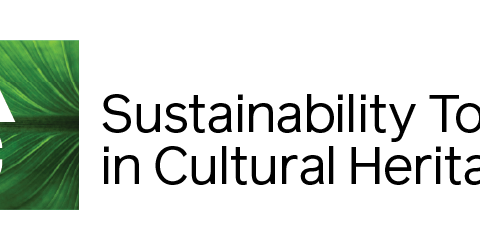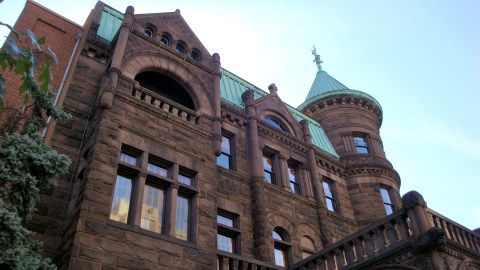
Of course, the answer to that classic question (“who’s the fairest of them all?”) is supposed to be “you—of course. You look fabulous.” But whom can we trust to tell the truth, rather than just saying what we want to hear?
When it comes to fashion, there is an app for that, soliciting unvarnished responses to another classic–“do these jeans make me look fat?” When the question is “are we (museums) great?” there isn’t an app (unless you count Yelp ratings), but the blog-o-sphere can be a pretty good mirror, if we are willing to look. Todays’ Musing points you to two recent unflattering reflections.
Are museums irrelevant, by internet start-up entrepreneur and homeschool mom Penelope Trunk, might better be titled “are museums lousy places for kids to learn?” Among her zingers served up in the post:
 |
| “Mirror Mirror on the Wall” By DarkNBrutal |
- “For today’s kids, the museum is an improvement over school, but not over learning at home. Which means that homeschoolers have little use for museums.”
- “Your kid’s passion is probably…not on the list [of what a museum offers]. Any museum is small compared to the world your kid lives in.”
- “Is it more fun to have all the information about velociraptors at your fingertips, in the Internet, or is it more fun to be limited to just what the museum chooses to tell you?”
- “museums are like school. They give you a choice of what to learn, but it’s a very limited choice and it’s in a confined space.”
Before you dismiss this criticism—take some time to listen. Whatever Trunk may or may not know about museums, she knows what she, and her sons, like. And read the comments (58 at the time I write), which reflect a balance of parents who agree with her and some (I’m sure this will soothe our egos) who are total museum fans. It is an interesting commentary in general on what people like and don’t like about museums (also, unusually well-written and civil, as internet blog commentary goes). Here is a sampling:
- “You go once, or maybe twice, for the exhibits; you go repeatedly for the community & for the opportunity to be an insider.”
- “My kids have both been going to the museums regularly since they were infants. In times of renovation, the temporary storage of a favorite statue once reduced my toddler son to a weeping lump.”
- “I’ve brought a lot of kids to a lot of museums and the best way I’ve found to make the best of it is to have no expectations about what a child will do there or get out of the experience…The biggest problem I have with museums and kids is the rule about not touching anything, though this has changed somewhat with the increase in hands on exhibits.”
- “…unless you learn visually, you’re not going to learn anything new at a museum that you couldn’t get for cheaper elsewhere.”
- “Ok, I went straight to the source. ‘Hey son, do you like museums?’ ‘Yep.’ ‘What about them do you like?’ ‘I like to look at stuff.’ And there we go. Mystery solved. :)”
- “If our kids are on some kind of science kick – STEM, animals, astronomy, whatever – we should be able to connect with an expert or mentor at the science museum to help us educate our kids on the topic. Instead, it’s just a big facility with stuff.”
- “I think museums have value because they gather interesting adults for my kids to interact with, other people who share a passion for some arcane field of knowledge.”
(As a bonus, the conversation ranges widely over schools, the special attention given to “underserved” kids v. gifted children, and the economic model for museums, including commentary on the Charity Navigator info about the Museum of Discovery and Science in Ft. Lauderdale. People actually read our 990s!)
Now I don’t know Trunk from Adam, but the second post is from someone I know and respect: Rob Walker, whom you might have heard talk at the AAM meeting in Baltimore last year, about his “Significant Objects” project. Rob is a guy who knows the power of objects, and the stories we attach to them, but in “Who Needs Zoos? In Praise of Nature Cams” he argues that “the mediated wild has distinct advantages over, say, physical-world zoos — for animals and for us.” Setting aside the conversation about the other roles zoos play in conservation (research, breeding), Rob’s piece is a fascinating glimpse at the psychology of watching animals, and a meditation on the value of the virtual v. the real (a point Trunk also touched on in her commentary).
So your (somewhat extended) Monday assignment: read, listen, and reflect on what these posts say about our image in society.









A mother of five stopped me the other day as I was walking through Conner Prairie, as she recognized me as the president. She explained that she homeschools two of her children and uses Conner Prairie as part of their curriculum and as a classroom adjunct for the other three. Other mother's express the same sentiment. AT CP we use story to explore science, technology, history, craft, the arts, the weather, plants, nature, and of course, significant events in the past. This mother emphasized that she can better understand her kids' interests, encourage curiosity, allow them experience things they have read about. Undoubtedly that is because our mission is to "inspire curiosity" and we take the challenge of engaging children and adults at the same time seriously.
Great testimonials, Ellen! Thanks for sharing. Are there centralized homeschool resource groups in your area that spread the word, or does the word spread by word-of-mom?